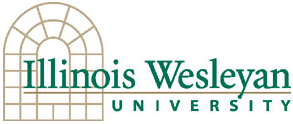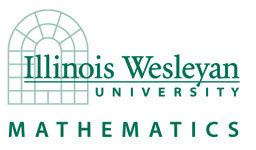
Illinois/Missouri Applied Harmonic Analysis Seminar

Abstracts

|
Illinois/Missouri Applied Harmonic Analysis Seminar |

|
|||
Abstracts | |||||
|
Title: “Data Acquisition Schemes for Compressed Sensing in Magnetic
Resonance Imaging”
University of Illinois, Urbana-Champaign
Compressed sensing has drawn recent interest due to the surprising result that sparse/compressible signals can often be recovered using a small set of non-adaptive measurements. This has the potential to significantly improve the speed of MRI data acquisition, and promising results have been demonstrated with quasi-random sampling in the Fourier domain. However, the design of optimal sampling schemes is still an important open problem. This talk describes the design of MR acquisition schemes, leveraging theoretical results from the compressed sensing literature. It is demonstrated that non-Fourier encoding based on the use of specialized signal excitation can work significantly better than more traditional Fourier schemes. Noise sensitivity results are also presented. Title: “On the nonexistence of AB scaling functions satisfying certain decay and smoothness constraints when B is a shear group with an odd number of generators”
Washington University in St. Louis
1. There is a function φ є L2( Rn) satisfying certain decay and smoothness constraints such that the collection {DbTk φ: b є B, k є Zn } forms a frame for V, where Db represents dilation by b and Tk translation by k. We will show that for many such B, properties 1 and 2 above cannot both be satisfied when B has an odd number of generators. One consequence of this is the nonexistence of AB MRA wavelets with well-behaved scaling functions when B has an odd number of generators and the matrix a is as in 2 above. Title: “Signal estimation from noisy frame coefficients”
Vanderbilt University
Title: “Analysis of Fractals, Image Compression and Entropy Encoding”
Department of Mathematics and Statistics, Southern Illinois University Edwardsville and Palle E. T. Jorgensen Department of Mathematics and Statistics, The University of Iowa
Title: “The basic properties of principal shift invariant spaces”
Washington University in St. Louis
|
|
Illinois Wesleyan University
Mathematics and Computer Science Department PO Box 2900 Bloomington, IL 61702-2900 Tel: (309) 556-3089 Fax: (309) 556-3864. |